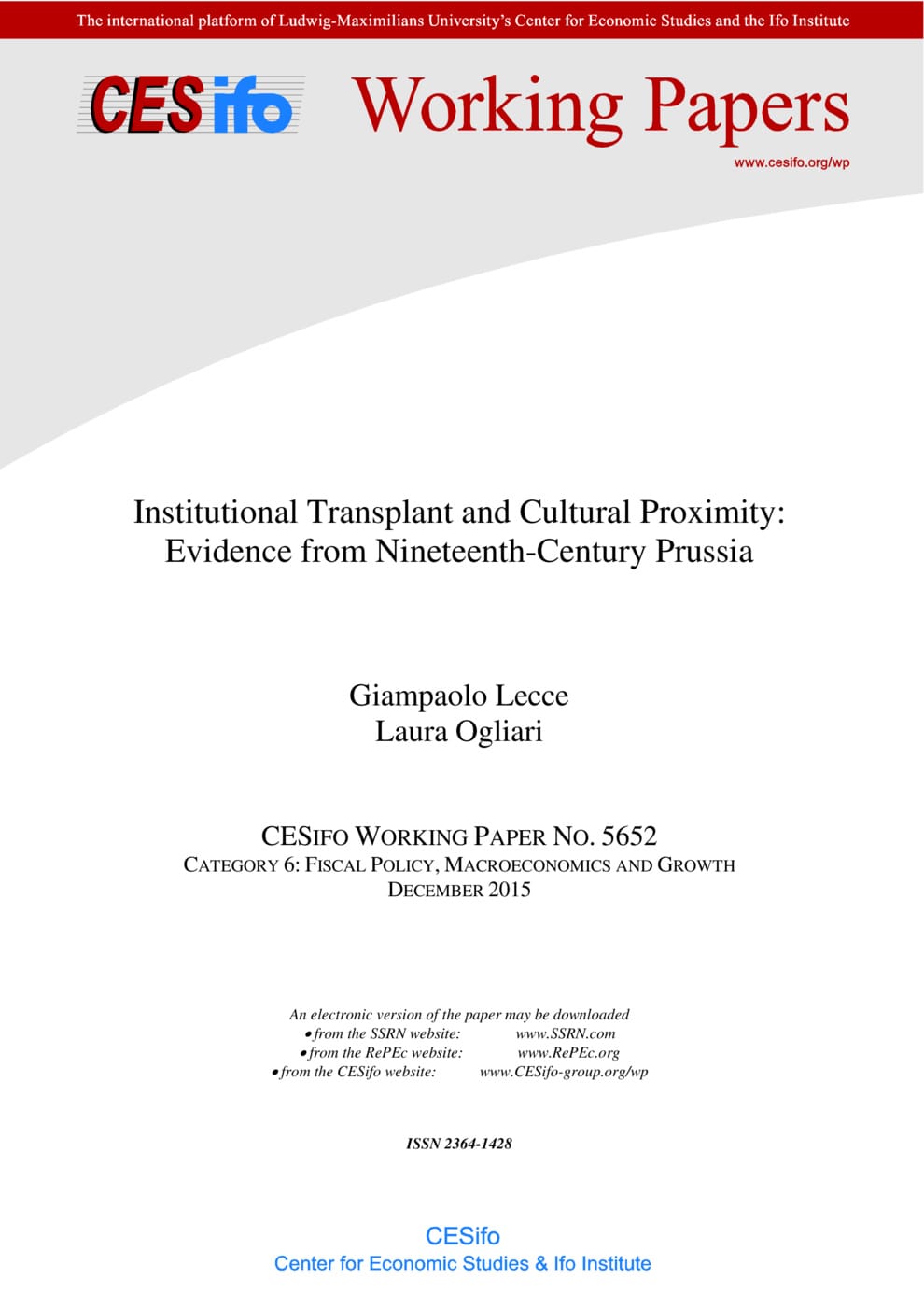Institutional Transplant and Cultural Proximity: Evidence from Nineteenth-Century Prussia
CESifo, Munich, 2015
CESifo Working Paper No. 5652

The economic impact of an institutional transplant depends on the underlying cultural envi-ronment of the receiving country. This paper provides the first evidence that the positive effect of importing good institutions cancels out when the receiving territories are characterized by cultural traits in conflict with those embedded in the imported institutions. We obtain this result using county-level data from late nineteenth-century Prussia. This environment allows us to exploit both the quasi-natural experiment generated by the radical Napoleonic institutional reforms and the deeply rooted cultural heterogeneity across Prussian counties. First, using religious affiliation as a proxy of cultural commonality, we find no effect of French institutions in Protestant areas. Then, using hand-collected data on pre-Napoleonic reigns we show that kingdoms with stronger ties to French culture exhibit a more effective transplant even when controlling for institutional proximity. Our findings are consistent with the hypothesis that cultural compatibility between the country exporting the institution and the receiving areas is a significant determinant of a successful transplant.
Fiscal Policy, Macroeconomics and Growth
Public Choice